Únase a getAbstract para acceder al resumen.

Únase a getAbstract para acceder al resumen.
Rise Science
You’re a Bad Leader When You’re Underslept
Rise Science, 2022
¿De qué se trata?
Don’t sacrifice your sleep to work more. Instead, sleep more to be a better leader.
Recommendation
Have you ever said, “I’ll sleep when I’m dead” to make excuses for working late? Well, you won’t necessarily die, just yet, from sleep deprivation, but your performance and leadership skills certainly suffer tremendously when you don’t get enough sleep. According to research, 42% of leaders get only six hours of sleep at night, or even less, when most adults need seven to nine hours. This article from Rise Science explores the consequences of sleep deprivation, and provides science-backed suggestions on how you can get more sleep.
Summary
About the Author
Rise Science is an energy-management app that employs 100 years of sleep science to help users get better sleep. The Rise blog covers sleep debt, sleep inertia, sleep hygiene, circadian rhythms, natural energy and other health topics.









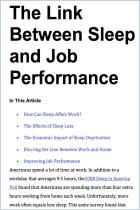
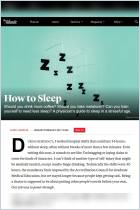
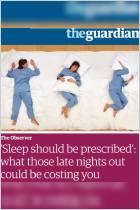
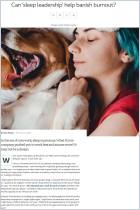
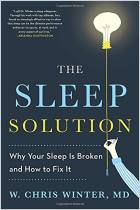
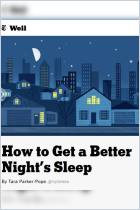





Comment on this summary